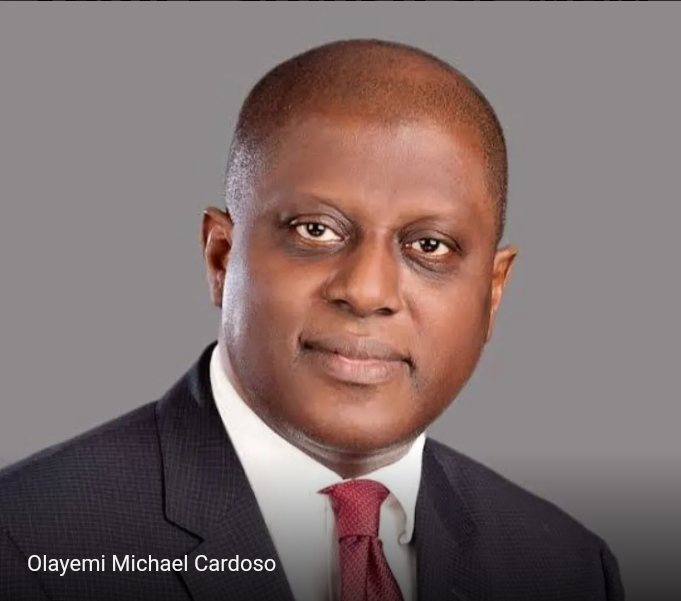
CBN Pursues Stronger Nigeria-Middle East Trade Ties
The Governor of the Central Bank of Nigeria (CBN) Olayemi Cardoso, has called for stronger economic ties between Nigeria and the Middle East, emphasising the need for collaboration in infrastructure, tourism, and financial sector development.
This was according to a press statement issued by the bank on Monday.
Speaking on the sidelines of the inaugural Conference on Emerging Markets Economies in Saudi Arabia, he met with the Assistant Governor for Monetary Affairs at the Saudi Central Bank, Talal Al-Humond, to discuss potential areas of cooperation between both countries.
The statement read, “The Governor of the Central Bank of Nigeria, Mr. Olayemi Cardoso, has canvassed stronger economic ties with the Middle East and the Nigerian diaspora community in the region.”
According to the statement, Cardoso stated that Saudi Arabia’s focus on economic diversification, large-scale transformation, and investment in tourism serves as a model Nigeria can learn from in its efforts to boost economic growth.
He also reaffirmed the apex bank’s commitment to engaging with the Nigerian diaspora in the Middle East to improve remittance flows and strengthen the country’s financial sector.
The statement also noted that Al-Humond assured him of Saudi Arabia’s willingness to collaborate on mutually beneficial economic objectives.
During a panel discussion at the conference moderated by the Director for the Middle East and Central Asia Department of the International Monetary Fund, Jihad Azour, Cardoso provided insights into Nigeria’s foreign exchange market reforms.
He noted that the gap between the official and parallel market exchange rates, which had been as wide as 60 per cent, has now narrowed to approximately 4–5 per cent, driven by policy consistency, improved market confidence, and enhanced transparency in forex trading, the statement noted.
He stated that the adoption of an electronic forex matching system and the introduction of a foreign exchange code of ethics, signed by all Nigerian banks, have helped restore confidence in the market.
As a result of these measures, Nigeria’s foreign reserves have now exceeded $40bn, marking their highest level in nearly three years, according to the statement.
He acknowledged that Nigeria had faced significant economic challenges, including capital flow reversals, multiple exchange rate regimes, currency depreciation, high inflation, and a backlog of foreign exchange transactions, which had led to a loss of confidence in the naira.
Upon assuming office, he said his team prioritised the restoration of market confidence by addressing the backlog of forex transactions and implementing reforms to stabilise the economy.
To tackle inflation and improve macroeconomic stability, he stated that the Central Bank had adopted a tight monetary policy stance, raising interest rates by 850 basis points over the past year.
He added that the Bank had also phased out quasi-fiscal interventions that had distorted the economy and instead reinforced orthodox monetary policies.
He highlighted the removal of the fuel subsidy as a major reform, stating that the policy, along with inefficiencies in the exchange rate system, had cost the country an estimated 6 per cent of its Gross Domestic Product annually.
He noted that while previous administrations had struggled with the political will to remove the subsidy, its elimination has significantly improved Nigeria’s fiscal outlook.
On the stability of the financial sector, Cardoso explained that the CBN had directed banks to recapitalise to strengthen the industry and build buffers to absorb economic shocks.
He stated that the recapitalisation policy was already proving effective in bolstering the resilience of Nigeria’s financial system.
He also spoke on financial inclusion and the role of digitalisation in expanding access to financial services, stating that Nigeria’s financial inclusion rate currently stands at 74 per cent.
He emphasised the need to accelerate financial inclusion efforts by expanding mobile money services, leveraging technology, and prioritising gender-focused financial initiatives, particularly for underserved populations.
He noted that ensuring access to financial services for all Nigerians would be critical in achieving broad-based economic growth.
Cardoso reaffirmed the CBN’s commitment to macroeconomic stability, policy consistency, and long-term economic resilience.
He said Nigeria had maintained its stance on monetary tightening despite global trends suggesting otherwise, a move that was initially met with scepticism but has since been acknowledged as necessary by financial experts and international institutions.
He maintained that monetary policy decisions must always be tailored to the unique conditions of each economy.
The Conference on Emerging Markets Economies, organised by the Saudi Ministry of Finance and the International Monetary Fund, was held in Al Ula, Saudi Arabia, from February 16 to 17, 2025, bringing together policymakers and economic experts from emerging markets to discuss structural changes in the global economy and their impact on developing nations.
